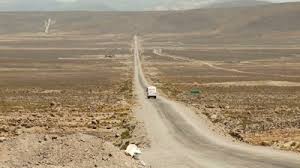Monthly Archives: October 2015
 23
23Oct
Seller Financing and the Dodd-Frank Act
Seller financing is an option for buyers who do not qualify for traditional loans. Seller financing allows a property owner who owns his house free and clear to transfer title to the property and accept a mortgage for a substantial portion of the sale price rather than receiving all of the money in one lump sum. This produces several benefits for the seller.
First, the seller will receive the tax benefits of not receiving a large lump sum and will likely get a higher return on their money than if they were to invest it elsewhere. There are a number of other benefits for the seller who decides to take the seller financing route but starting at the beginning of this month, restrictions went into effect that may reduce some of the benefits. The passage and enactment of the Dodd-Frank Wall Street Reform and Consumer Protection Act has created the following restrictions on seller financing:
– The seller cannot be the one who constructed the home.
– The loan must be fully amortized. No balloon payments are allowed.
– The seller must determine in good faith that buyer has a reasonable ability to repay the loan.
– The loan must have a fixed interest rate for a minimum of five years.
-The loan must meet criteria identified by the Federal Reserve Board.
Congress’ intent when it passed the Dodd-Frank Act was to increase regulations on financial institutions in order to prevent another financial crisis. However, many perceive the restrictions on seller financing will result in giving more power to the banks and less to the individual.
For experienced attorneys who handle Arizona real estate and property issues, contact the law office of Richard Klauer and schedule an appointment.
 15
15Oct
The Rise of Residential Property Tax in Arizona
If you own property in Arizona, be aware that your property tax is about to increase. Legislatures, in large part influenced by lobbyists of large companies, are shifting the tax burden from large commercial properties to residential properties. Before going into detail, it is important to have at least a general understanding of the Arizona property tax system.
Properties are classified into two major classes; commercial and residential property. Commercial consists of income producing properties and residential property is just that, residential, or property that does not produce income. The larger commercial properties are valued by the Arizona Department of Revenue (DOR) and the smaller ones, like mom and pop stores, are valued by the county assessor. All residential properties are valued by the county assessor. The DOR and county assessor place two values on each property; the full cash and limited value. The limited value, which is the value of concern, is factored by an assessment ratio set by the legislature to determine the taxable value.
Since 1973, the assessment ratio has been set at 10{8438d4ed2bb89d58da5fb188fb5e3a54d93a11ec32721f0f7e4cdf3979ff74e2}. The ratio for most DOR valued commercial properties was 50{8438d4ed2bb89d58da5fb188fb5e3a54d93a11ec32721f0f7e4cdf3979ff74e2} in 1979, 25{8438d4ed2bb89d58da5fb188fb5e3a54d93a11ec32721f0f7e4cdf3979ff74e2} in 1999, 20{8438d4ed2bb89d58da5fb188fb5e3a54d93a11ec32721f0f7e4cdf3979ff74e2} in 2012, and will drop to 18{8438d4ed2bb89d58da5fb188fb5e3a54d93a11ec32721f0f7e4cdf3979ff74e2} next year, equating to a 64 percent drop. Commercial property assessed by the county assessor will also drop to 18{8438d4ed2bb89d58da5fb188fb5e3a54d93a11ec32721f0f7e4cdf3979ff74e2}, a 28{8438d4ed2bb89d58da5fb188fb5e3a54d93a11ec32721f0f7e4cdf3979ff74e2} decrease since 2005. Reducing the limited value of DOR valued commercial properties 64 percent and the county assessor valued properties 28 percent has resulted in an approximate 20-30 percent increase.
Thanks to the special interest tax breaks, people who own residential property will see a substantial increase in property tax. The increase in residential property tax will also be locked in for years to come due to legislators successfully getting Proposition 117 on the 2012 ballot. The campaign was supported and paid for by members of the Arizona Tax and Research Association, an organization that primarily consists of lobbyists for owners of high valued commercial property. Even though ATRA’s campaign material stated that it would lower property taxes, it will neither raise nor lower property taxes but it will lock in the tax burden shift on the residential property owners at least for the near future. Not knowing the potential consequences of passing Proposition 117, 55 percent of the voters voted to pass it. 
If you would like to voice your opinion on this matter you should contact the legislator for your district (contact information included below). Voicing your opinion to anyone other than your legislator will unlikely result in change. If you have any questions about property tax or how the burden shift will affect your property, feel free to contact my office.
• To find your district/legislator go to www.azleg.gov and click on, “How do I find my legislators”
• If you do not have access to the internet you can call 602-926-3559
• To send a letter to your legislator send it to (Legislator’s Name) Arizona State Senate (or Arizona House of Representatives), 1700 W. Washington, Phoenix, AZ 85007.
 07
07Oct
Notario or Lawyer?
Have you ever hired a Notario to prepare legal documents, or seen a business advertise as being a Notario? You should be aware of a growing problem in the southwestern United States where people are taking advantage of the language barrier in order to defraud clients by charging large sums of money for tasks that they are legally not able to provide.
Notario Fraud is occurring mainly in the southwestern United States because of the large number of Hispanic speakers. Individuals who take part in Notario fraud take advantage of the difference in legal systems between the United States and many Latin American countries where a Notario is a type of lawyer who is able to practice law in a number of legal fields. In the United States, a Notario is not an attorney and often is only a Notary Public. Because the different meaning of the word and the difference of the legal systems, scammers will advertise as a Notario and prey on Spanish speakers seeking legal representation.
Notario fraud is especially common when it comes to Immigration. The scammer conveys that he can help expedite the immigration process of a loved one when in fact, he does not possess the ability or legal authority to do so. There have been reports of Spanish speaking immigrants paying over twenty thousand dollars in order to secure “the services” of the Notario to help with an immigration issue. This is especially problematic considering once the scammer takes advantage of the person, he disappears with the money and leaves the victim broke and without recourse.
Because Notario fraud has long been a problem and continues to grow, many state bar associations provide resources for people contemplating “hiring” a notario and for the many unlucky individuals who have already fallen prey to the scam. The rule of thumb when considering hiring someone to provide legal representation is to contact the state bar to confirm the person is certified to practice law in the state.
Links Concerning Notario Fraud and lawyer search page for Arizona
1. http://www.stopnotariofraud.org
2. http://www.americanbar.org/groups/public_services/immigration/projects_initiatives/fightnotariofraud/about_notario_fraud.html
3. http://www.azbar.org/FindALawyer
Feel free to call our office if we can help you with these kinds of issues.
 01
01Oct
The Flight of the Rural Lawyer in Arizona
Are you from a rural area in Arizona and had to resort to hiring an attorney in the Phoenix area? This is the trend across the United States, including Arizona. It is inconvenient, time consuming, and more importantly, costs more money for legal representation.
Next time you complain about having to travel fifteen minutes to meet your attorney, keep in mind there are unfortunate people who have to travel hours. Years ago, there was always a number of attorneys in rural towns but with the rising cost of law school and the specialization in the legal profession, attorneys are forced to the big cities. Regardless of why attorneys have fled rural areas, residents from these areas continue to need representation and need firms like ours who are willing to travel to represent their clients.
In response to the scarcity of lawyers in rural areas, towns are making concessions to individuals who cannot travel to the nearest city to hire an attorney. In Mohave County, the court’s IT department established a kiosk system known as the North County Kiosk. The kiosk can access any of the county’s courtrooms, users can pay fines, and even make courtroom appearances through the kiosk. If these services were not available, citizens of northwest Mohave County would have to travel more than an hour driving through a part of Utah to get to the nearest courthouse.
With the help of technology, people in rural areas are still able to acquire representation from the neighboring cities as long as the attorney is willing to actively engage with the client and is willing to travel. We are willing to travel to every town in Arizona, so if you are in a rural town and are having difficulties securing quality representation, contact our office.